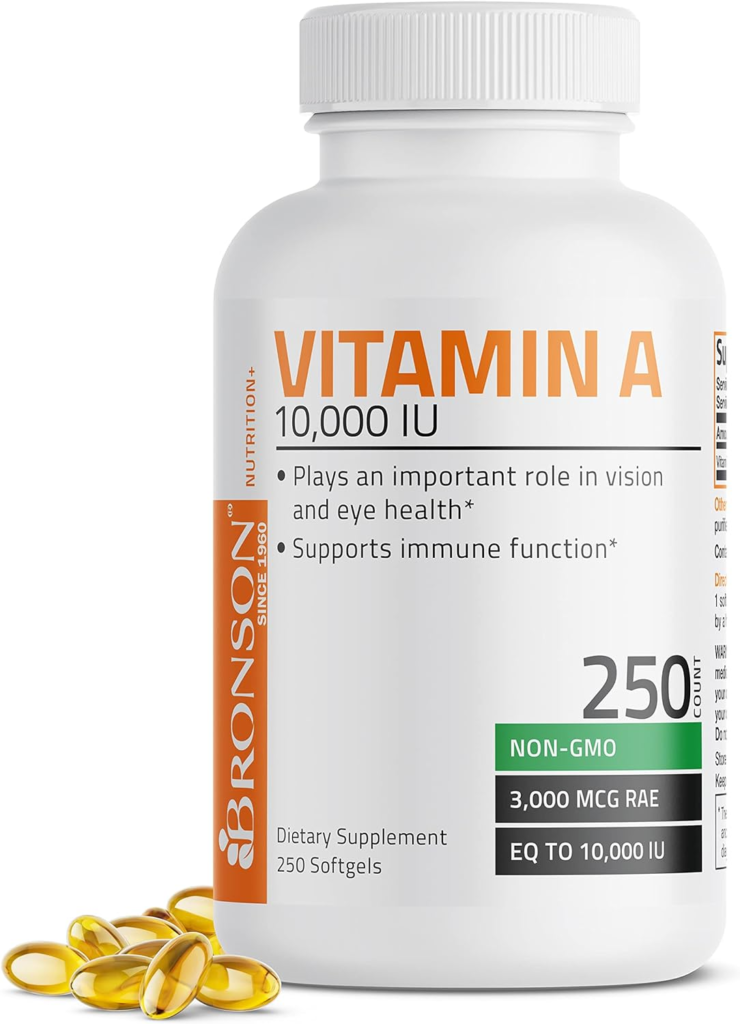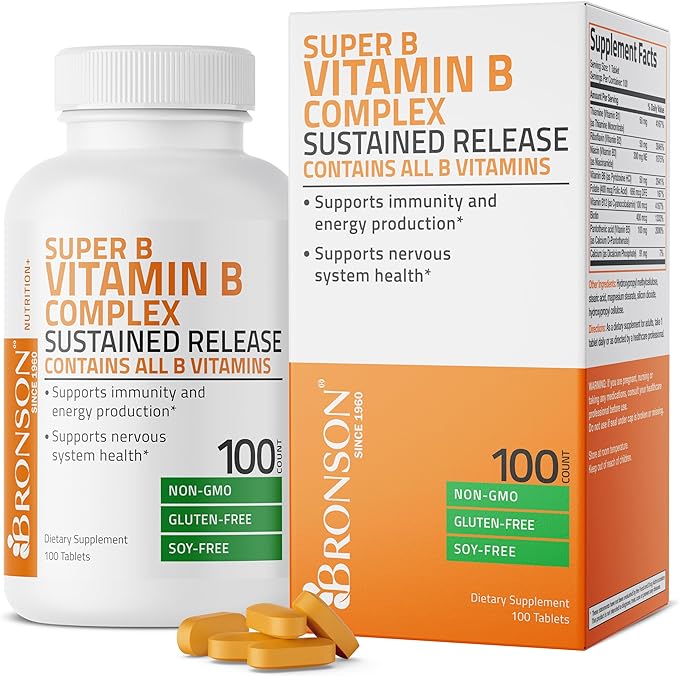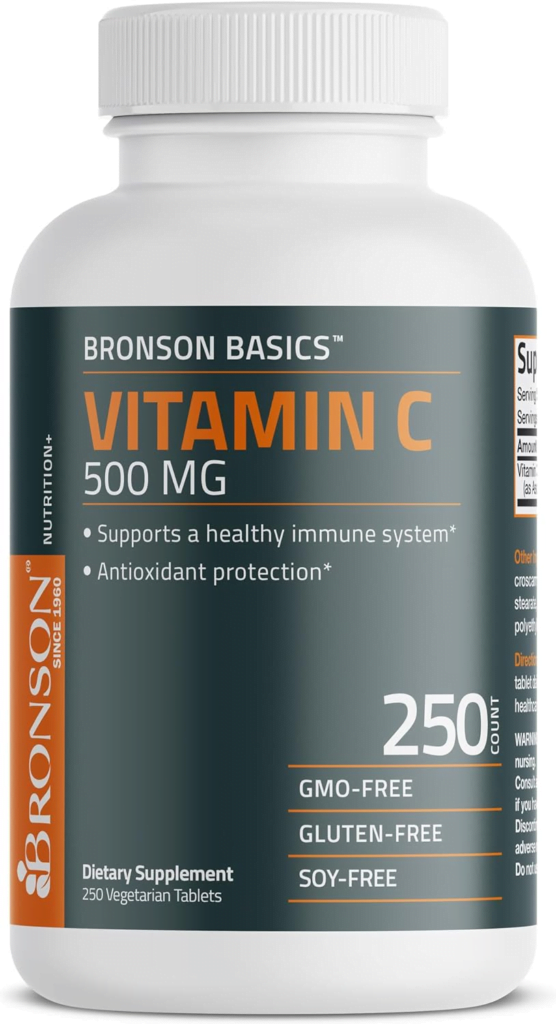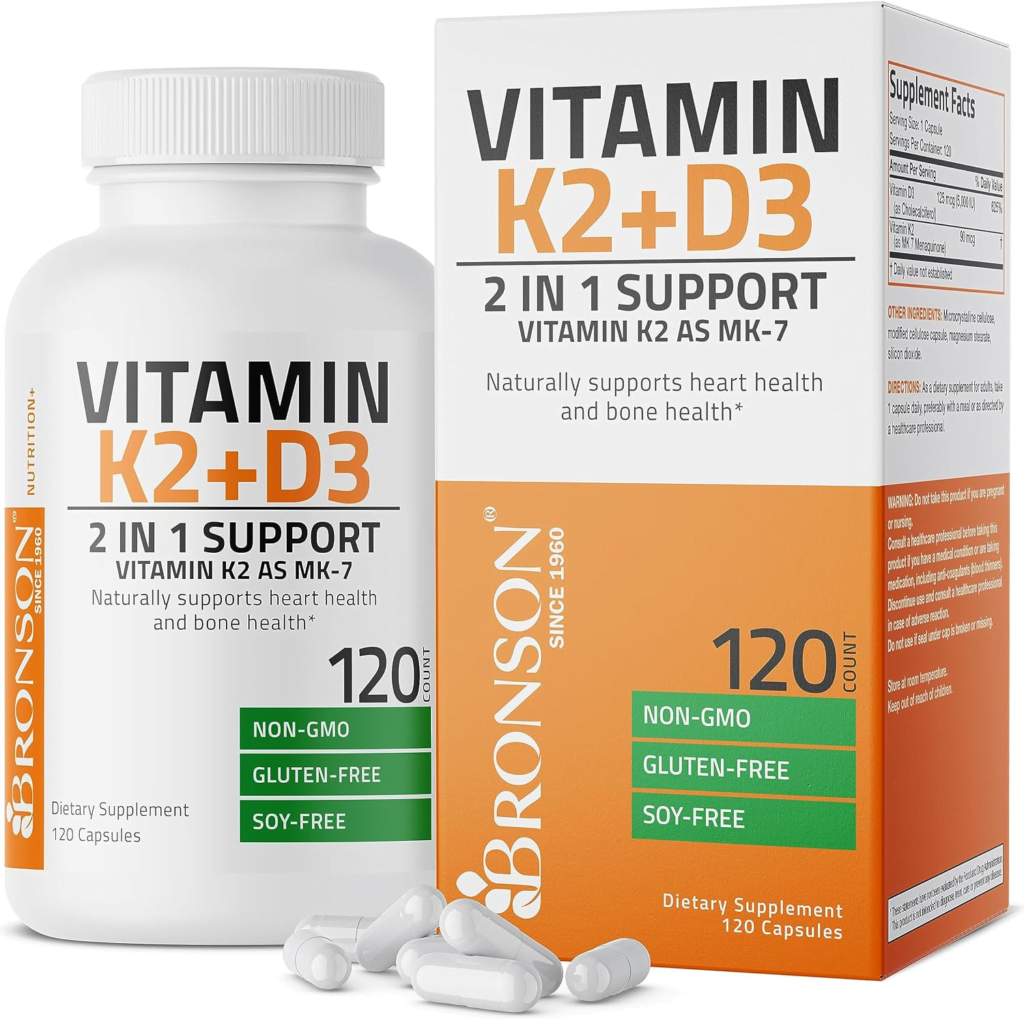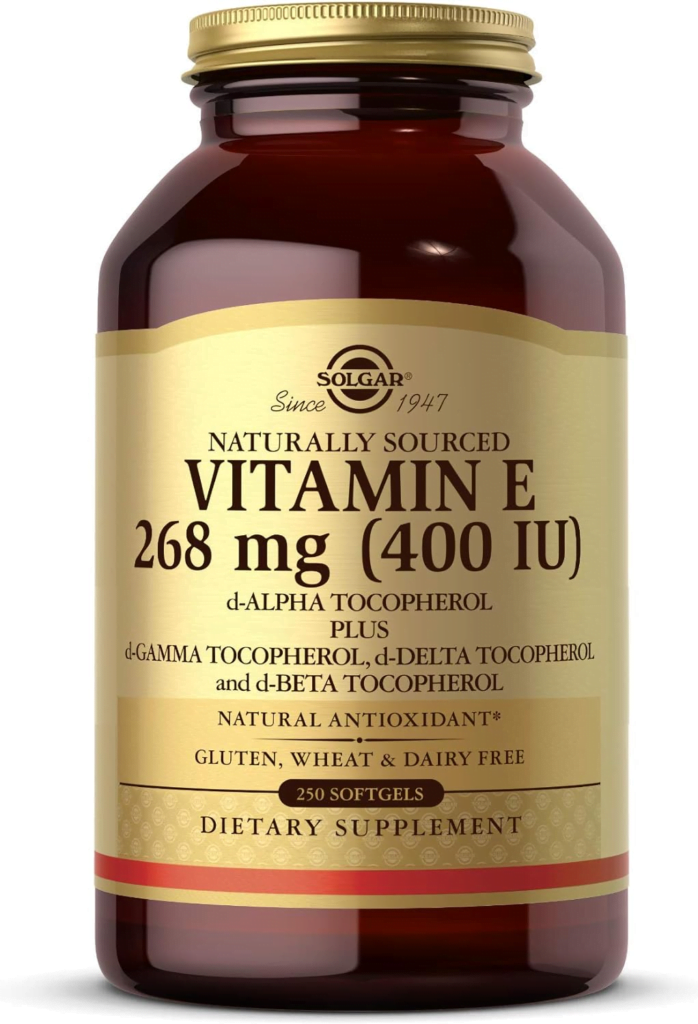Introduction
Welcome to our exploration of the five essential vitamins that are not only crucial for maintaining good health but also pivotal in ensuring a long, vibrant life. These vitamins are the unsung heroes in our daily lives, playing a multitude of roles – from bolstering our immune system to enhancing our body’s ability to repair itself and maintain vital functions.
Their importance cannot be overstated; each vitamin serves a unique and indispensable function. For instance, they aid in the conversion of food into energy, keep our vision sharp, strengthen our bones, and even help in cellular repair and growth. In essence, these vitamins are foundational building blocks for a healthy body and mind.
Understanding these vitamins is key to both longevity and a healthy lifestyle. Let’s explore each one in detail.
Vitamin A: The Vision and Immune Booster 🥕
What is Vitamin A?
Vitamin A is a vital nutrient that plays an integral role in several key functions of the human body. It’s essential for maintaining not only healthy vision but also for preserving the integrity and function of skin and mucous membranes. Additionally, it’s crucial for robust immune system function. This powerhouse vitamin comes in two primary forms: retinol and beta-carotene.
An estimated 250,000 to 500,000 vitamin A-deficient children become blind every year, with half of them dying within 12 months of losing their sight.
World Health Organization
Retinol
Retinol is the active, animal-based form of Vitamin A. It’s found in a variety of animal products and is directly used by the body. This form is essential for maintaining good vision, especially in low light conditions, and it helps keep the skin and linings of some parts of the body, like the nose, healthy.
Beta-Carotene
Beta-carotene, on the other hand, is the plant-based precursor to Vitamin A, found in colorful fruits and vegetables. Our bodies convert beta-carotene into Vitamin A, and it acts as a powerful antioxidant, protecting cells from damage caused by harmful free radicals. This is significant because oxidative stress from free radicals can lead to chronic conditions such as heart disease and cancer.
The dual nature of Vitamin A, derived from both animal and plant sources, allows for flexibility in dietary choices to ensure adequate intake. It’s a testament to its importance that a deficiency in this vitamin can lead to a range of health issues, including vision problems like night blindness, a higher susceptibility to infections, and skin issues.

Why You Need Vitamin A
- Eye Health: Essential for good vision, especially in low light.
- Skin Health: Keeps skin healthy and repairs tissue damage.
- Immune System: Strengthens the immune system against infections.
Where to Find It
- Animal Sources: Liver, fish oils, and dairy products.
- Plant Sources: Carrots, sweet potatoes, spinach, and kale.
OUR TOP AMAZON VITAMIN A PICK
Vitamin A is not just a single entity but a group of compounds that are critical for preserving eyesight, fortifying skin health, and bolstering the immune system. Its dual sources from both animal and plant-based foods make it a versatile nutrient that plays a crucial role in maintaining overall health and well-being.
Daily Recommended Intake
- Adult Men: 900 mcg
- Adult Women: 700 mcg
Vitamin B Complex: The Energy Boosters 🍌
What is Vitamin B Complex?
The Vitamin B complex is a group of eight water-soluble vitamins that are essential for various metabolic processes in the body. This complex includes B1 (Thiamine), B2 (Riboflavin), B3 (Niacin), B5 (Pantothenic Acid), B6 (Pyridoxine), B7 (Biotin), B9 (Folate), and B12 (Cobalamin). Each of these vitamins has unique roles but together, they are crucial for maintaining overall health and well-being.
Vitamin B12 deficiency is a notable health concern among the elderly. In the United States and the United Kingdom, approximately 6% of individuals under 60 years of age are affected by Vitamin B12 deficiency, while nearly 20% of those over 60 years old experience this deficiency. This statistic underscores the increased risk of Vitamin B12 deficiency in older adults, which can have significant health implications
American Family Physician
Thiamine
B1 (Thiamine) plays a pivotal role in converting nutrients into energy, particularly carbohydrates, making it vital for glucose metabolism. It’s also essential for the proper function of the heart and nervous system.
Riboflavin
B2 (Riboflavin) is key in energy production and the breakdown of fats, drugs, and steroids. It helps in the conversion of vitamins B6 and B9 into active forms and is important for skin health and maintaining clear vision.
Niacin
B3 (Niacin) contributes to the functioning of the digestive system, skin health, and nervous system. It’s significant in converting food to energy and can help lower cholesterol levels when taken in high doses.
Pantothenic Acid
B5 (Pantothenic Acid) is involved in the synthesis and metabolism of proteins, carbohydrates, and fats. It’s essential for the production of red blood cells and steroid hormones, and it plays a role in maintaining a healthy digestive tract.
Pyridoxine
B6 (Pyridoxine) is crucial for amino acid metabolism, red blood cell production, and the creation of neurotransmitters. It’s also involved in immune function and brain health.
Biotin
B7 (Biotin), often associated with hair, skin, and nail health, plays a role in the metabolism of fatty acids, amino acids, and glucose. It’s essential for energy production and gene expression.
Folate
B9 (Folate) is vital for cell division, the production of DNA and RNA, and is particularly important during periods of rapid growth such as pregnancy and fetal development. It also works with B12 in red blood cell production and iron function.
Cobalamin
B12 (Cobalamin) is essential for neurological function, DNA production, and red blood cell development. It’s unique among vitamins as it can only be found in animal products or fortified foods.
OUR TOP AMAZON VITAMIN B COMPLEX PICK
Why You Need B Vitamins
- Energy Production: Help convert food into energy.
- Brain Function: Essential for proper brain and nerve function.
- Red Blood Cell Formation: Vital for producing red blood cells.

Where to Find Them
- Whole Grains: Brown rice, barley, and millet.
- Meat and Fish: Chicken, turkey, and salmon.
- Vegetables: Leafy greens, avocados, and peas.
Together, the B vitamins are powerful allies in maintaining energy levels, brain function, and cellular metabolism. They play an instrumental role in supporting and enhancing the body’s endurance and vitality, making them indispensable nutrients in our daily diet. Their collective action in energy production and red blood cell formation highlights their importance in keeping our bodies functioning at their best.
Daily Recommended Vitamin B Intakes
- Vitamin B1 (Thiamine): About 1.2 mg for men and 1.1 mg for women.
- Vitamin B2 (Riboflavin): About 1.3 mg for men and 1.1 mg for women.
- Vitamin B3 (Niacin): 16 mg for men and 14 mg for women.
- Vitamin B5 (Pantothenic Acid): 5 mg for both men and women.
- Vitamin B6 (Pyridoxine): Around 1.3 mg for adults under 50; 1.7 mg for men over 50 and 1.5 mg for women over 50.
- Vitamin B7 (Biotin): 30 mcg for both men and women.
- Vitamin B9 (Folate): 400 mcg for adults.
- Vitamin B12 (Cobalamin): 2.4 mcg for adults.
Vitamin C: The Immune and Antioxidant Champion 🍊
What is Vitamin C?
Vitamin C, scientifically known as ascorbic acid, stands out as a potent antioxidant with a critical role in various bodily functions. This essential nutrient is renowned for its significant contribution to immune system strength and skin health, among other benefits.
As an antioxidant, Vitamin C plays a vital role in protecting cells from the damage caused by free radicals – molecules that can contribute to the aging process and the development of health conditions like heart disease and cancer. By neutralizing these free radicals, Vitamin C helps maintain the overall health and resilience of the body.
Additionally, vitamin C can improve mitochondrial function and stimulate autophagy, the breakdown of cellular waste and proteins that accumulate with age. These actions of vitamin C contribute to its potential anti-aging effects, separate from its antioxidant role.
Novos Labs
In terms of immune health, Vitamin C is a key player. It supports the immune system in several ways: by promoting the production and function of white blood cells which fight infections, enhancing the skin’s defense system, and helping wounds heal faster. It’s especially important during times of illness or stress when the body’s requirement for Vitamin C increases.
Moreover, Vitamin C is crucial for the synthesis of collagen, a protein that’s essential for the structure and health of skin, blood vessels, bones, and connective tissue. This makes it not just a skin health champion but also a vital nutrient for overall structural integrity and healing processes in the body.
Additionally, Vitamin C enhances the absorption of iron from plant-based foods and contributes to the maintenance of healthy teeth and gums. It’s also involved in the biosynthesis of certain neurotransmitters, highlighting its role in brain function.
Interestingly, unlike most animals, humans cannot synthesize Vitamin C, which means it must be obtained through diet or supplements. Rich sources include citrus fruits, strawberries, bell peppers, broccoli, and kale.

Why You Need Vitamin C
- Immune Support: Boosts the immune system.
- Skin Health: Helps in the production of collagen.
- Antioxidant: Protects cells from damage.
Where to Find It
- Fruits: Oranges, strawberries, and kiwi.
- Vegetables: Bell peppers, broccoli, and Brussels sprouts.
OUR TOP AMAZON VITAMIN C RECOMMENDATION
Vitamin C’s role extends far beyond just being a powerful antioxidant. Its multifaceted contributions to immune defense, skin health, collagen production, wound healing, iron absorption, and neurological function underscore its importance as an essential nutrient in maintaining overall health and vitality.
Daily Recommended Intake
- Adult Men: 90 mg
- Adult Women: 75 mg
Vitamin D: The Sunshine Vitamin ☀️
What is Vitamin D?
Vitamin D, often referred to as the “sunshine vitamin,” plays a crucial role in several aspects of our health, most notably in bone health and immune function. This unique vitamin stands out because unlike most nutrients, our bodies can synthesize it when our skin is exposed to sunlight.
There are indications that vitamin D may protect telomere length, a marker of aging. Aging affects the body’s ability to produce and utilize vitamin D3, leading to a need for increased attention to vitamin D levels in older individuals.
Youth and Earth
Bone Health
Vitamin D is essential for the absorption of calcium and phosphorus, two minerals critical for building and maintaining strong bones. Without sufficient Vitamin D, our bones can become thin, brittle, or misshapen. This vitamin is vital in preventing bone disorders such as rickets in children and osteoporosis in adults.
Immune Function
Vitamin D is also a key player in the immune system. It helps regulate the immune response and has anti-inflammatory properties. Adequate levels of Vitamin D can enhance our immunity and protect against certain infections and autoimmune diseases.
Sunlight and Vitamin D Synthesis
One of the most remarkable aspects of Vitamin D is that our bodies can produce it when exposed to sunlight, specifically UVB rays. This process is our primary source of Vitamin D, making moderate sun exposure an essential part of maintaining optimal levels. However, the amount of Vitamin D synthesized from sunlight can vary significantly depending on factors like geographic location, skin pigmentation, time of day, and season.
Other Sources
Besides sunlight, Vitamin D can also be obtained from certain foods and supplements. Fatty fish like salmon and mackerel, fish liver oils, and fortified foods such as milk, orange juice, and cereals are good dietary sources. For individuals who have limited sun exposure or dietary intake, supplements can be an effective way to ensure adequate levels.
Regulation of Other Body Functions
Beyond its role in bone health and immune function, Vitamin D is involved in cell growth modulation, neuromuscular function, and the reduction of inflammation. It may also play a role in protecting against diseases such as heart disease and certain forms of cancer.

OUR AMAZON VITAMIN D PICK
Why You Need Vitamin D
- Bone Health: Helps in calcium absorption for strong bones.
- Immune Function: Supports the immune system.
- Mood Regulation: Linked to mood improvement.
Where to Find It
- Sunlight: Exposure to sunlight.
- Food Sources: Fatty fish, egg yolks, and fortified foods.
Vitamin D’s multifaceted role in promoting bone health, bolstering the immune system, and its unique synthesis through sunlight exposure highlight its importance in overall health and well-being. Its influence on other body functions further underscores the need to maintain optimal levels of this vital nutrient, whether through sunlight exposure, diet, or supplementation.
Daily Recommended Intake
- Adults: 600-800 IU
Vitamin E: The Skin and Cell Protector 🌰
What is Vitamin E?
Vitamin E, a key fat-soluble antioxidant, plays a significant role in maintaining overall health, particularly in skin health and cellular protection. This vitamin is comprised of a group of compounds called tocopherols and tocotrienols, each with its own unique properties and benefits.
Antioxidant Properties: As an antioxidant, Vitamin E is renowned for its ability to combat oxidative stress caused by free radicals. These free radicals are unstable molecules that can damage cells, contributing to aging and the development of some diseases. By neutralizing free radicals, Vitamin E helps protect cells from this damage. This is especially important for maintaining healthy skin, as oxidative stress can accelerate skin aging and contribute to skin issues.
High-dose vitamin E might delay Alzheimer’s disease progression, yet there’s no definitive evidence that it prevents mild cognitive impairment from progressing to Alzheimer’s.
Mayo Clinic
Skin Health
Vitamin E is vital for maintaining the health and appearance of the skin. It helps in keeping the skin hydrated and aids in skin repair and rejuvenation. Its moisturizing properties make it a common ingredient in skincare products. Additionally, Vitamin E’s antioxidant action helps protect the skin from damage caused by UV rays and environmental pollutants, making it a critical nutrient for those seeking to maintain youthful, healthy skin.
Cellular Protection
Beyond its skin benefits, Vitamin E plays a crucial role in the overall protection of cells. It helps maintain the integrity of cell membranes, which are vital for the proper functioning of all cells. This protective role is important not just for skin cells but for cells throughout the body, including those in the heart and blood vessels.
Other Health Benefits
Vitamin E has also been associated with other health benefits, including supporting immune function, eye health, and possibly reducing the risk of certain chronic diseases due to its antioxidant properties. Some studies suggest that Vitamin E may play a role in preventing or slowing down the progression of diseases caused by oxidative stress, such as heart disease and cancer.
Sources of Vitamin E
This vital nutrient can be found in a variety of foods, including vegetable oils (such as wheat germ, sunflower, and safflower oil), nuts (like almonds and hazelnuts), seeds (such as sunflower seeds), and green leafy vegetables (like spinach and broccoli). It is also available in supplement form, though it’s generally best to obtain nutrients from food sources when possible.

Why You Need Vitamin E
- Skin Health: Helps maintain healthy skin.
- Cell Protection: Protects cells from oxidative damage.
- Immune Support: Boosts immune function.
Where to Find It
- Nuts and Seeds: Almonds, sunflower seeds, and hazelnuts.
- Vegetable Oils: Sunflower, safflower, and wheat germ oil.
- Green Vegetables: Spinach and broccoli.
OUR AMAZON VITAMIN E PICK
Vitamin E’s role as a fat-soluble antioxidant makes it a critical nutrient for maintaining skin health and protecting cells from oxidative damage. Its benefits extend to various aspects of health, including supporting the immune system and potentially reducing the risk of chronic diseases. A diet rich in Vitamin E can help ensure adequate intake of this essential nutrient for overall health and well-being.
Daily Recommended Intake
- Adults: 15 mg
Wrapping It Up 🌈
Incorporating these essential vitamins into your diet can significantly benefit your overall health. Remember, a balanced diet rich in fruits, vegetables, whole grains, and lean proteins is the best way to get these nutrients. Stay healthy and vibrant with these vital vitamins! 🍏🥦🥚🥕🌞

























